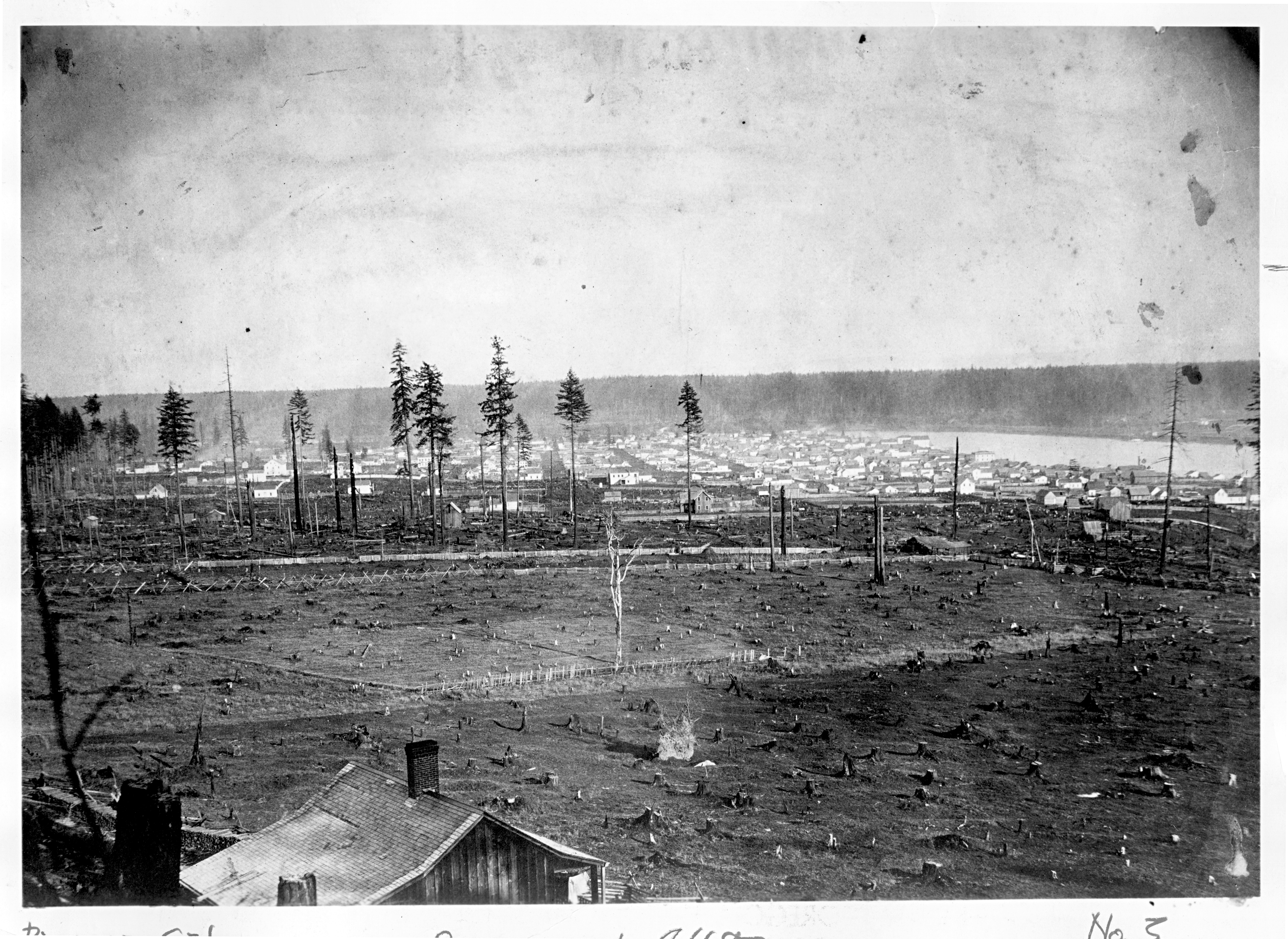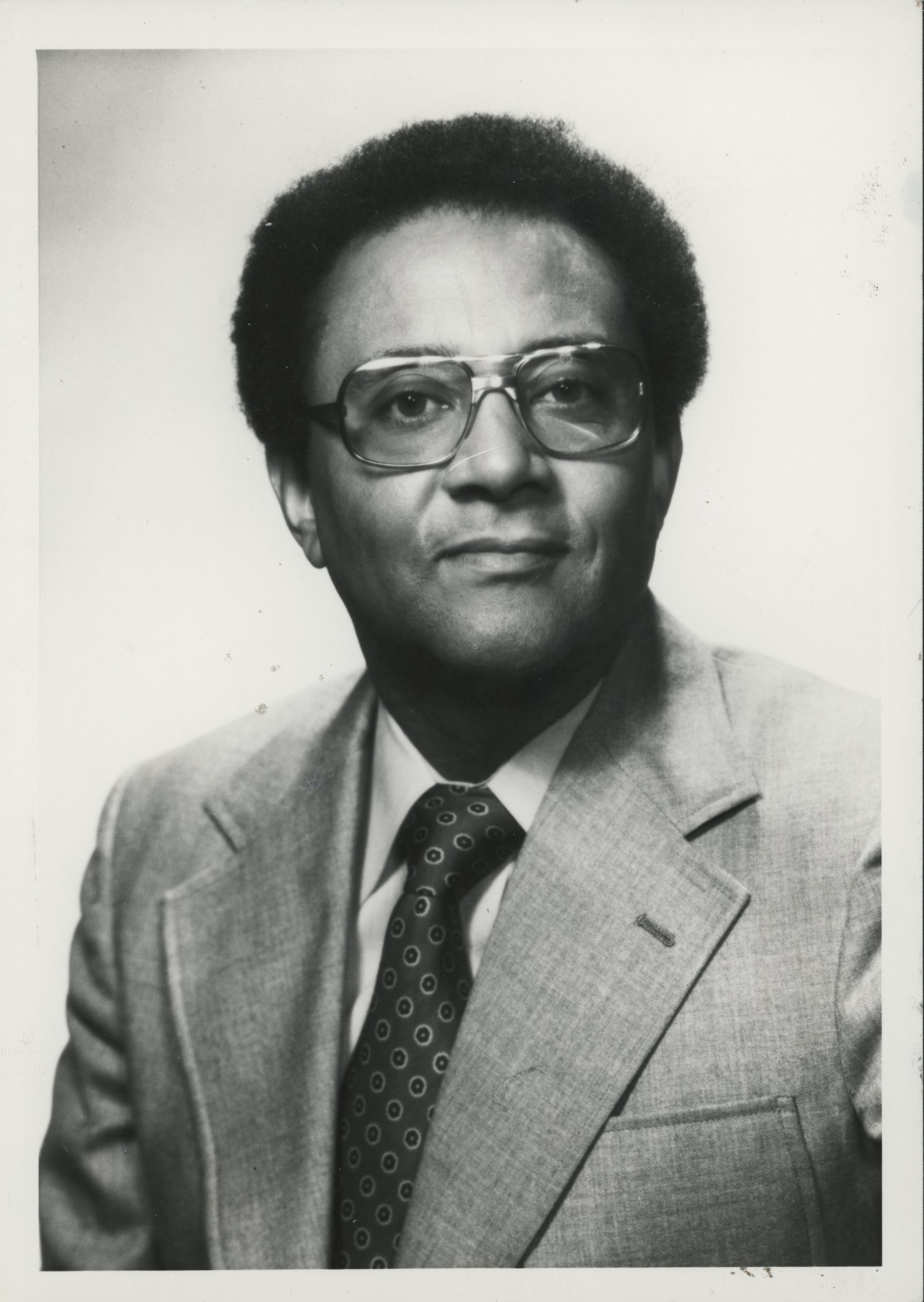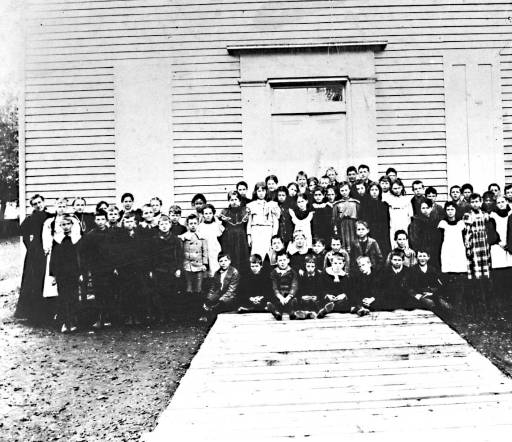On March 19, 1982, the Portland Public School Board met in a regularly scheduled meeting. In attendance was Matthew W. Prophet Jr., who was to begin his tenure as the first Black PPS superintendent three days later. Also in attendance were more than ninety chanting demonstrators, brought together by the Black United Front to protest the board’s site selection for Harriet Tubman Middle School. Prophet was reportedly unruffled by the crowd and would resolve the Tubman siting issue within a year. He stayed at PPS for ten years, and his tenure produced a fiscally sound school district, well-paid teachers, and impressive academic gains for students.
Matthew Prophet was an unlikely superintendent of an urban school district. Born in rural Okolona, Mississippi, in 1930, his mother Elzira was a teacher and his father Matthew was a house painter and paperhanger. Matthew Prophet Jr. graduated in 1949 from Okolona Industrial School, whose purpose was to educate African American students through high school and then trade school. But Prophet’s mother wanted him to go to Cornell University and become a doctor. Instead, he attended Howard University, where he spent his time “really living it up,” he remembered, playing trumpet and trombone in bands. Within two years, he flunked out.
Prophet was drafted into the U.S. Army in 1951 during the Korean War, the beginning of his twenty-year career in the armed forces. He immediately challenged the status quo by fighting the racial segregation he encountered in the barracks and the racism evident in promotions and assignments. He also pressed to attend Officer Candidate School and became the executive officer of a racially integrated unit. “It was there, quite honestly, for the first time that I gained respect for people of all races,'' Prophet told the Oregonian in 1988. “People who are injured and in pain hurt regardless of their race. In combat, I never saw race make a difference.” He later served in a series of command, training, and educational posts that took him to South Korea, West Germany, and South Vietnam. He retired from the army in 1971 at the rank of lieutenant colonel.
While in the military, Prophet received a bachelor’s degree in general education at Municipal University of Omaha (1960) and a master’s degree in education administration at Roosevelt University in Chicago (1970). He also earned a Ph.D. in educational supervision and administration from Northwestern University in Evanston, Illinois (1972). On his retirement from the army, he turned his attention to public school education, serving from 1972 to 1982 as deputy superintendent and then superintendent of the Lansing, Michigan, public schools.
The Portland School Board recruited Prophet in 1982 to “improve student academic achievement, reduce the dropout rate and assure equal educational opportunity for racial minority students.” Although he had never been a classroom teacher, he argued that “his background in the armed forces gave him the teaching and management experience that now makes him a valuable force in directing troubled, urban schools.”
Described as “an intense, friendly man,” Prophet tackled two immediate issues: PPS’s fiscal solvency and the school board decision about where to locate Harriet Tubman Middle School. He resolved the first issue quickly. Between his arrival in Portland in early 1982 and the school budget election five months later, Prophet delivered 137 speeches asking Portland voters for a $151 million tax base (at the time, schools were funded primarily by local tax levies). The voters approved the levy, and Prophet never again asked them for money. The issue of where to build Harriet Tubman Middle School was resolved about a year later with successful mediation talks between the school district and members of the Black community.
Early in his tenure, Prophet clarified that “I am not a black superintendent of schools. I am a superintendent of schools who happens to be black. I see myself as…superintendent for all the children of Portland, regardless of their race, their creed or their color.” He recognized that his job required not only administrative skills but also community relations. He reorganized the school district so that middle schools included grades six through eight, and created clusters that consisted of a high school and the lower grades that fed into it. He eliminated some midlevel managers, which saved the district about $50 million over his ten-year tenure. Those saved dollars were put into remedial and enrichment programs in schools that had a high proportion of poor and minority students.
Prophet’s community relations included giving radio and television interviews and speaking to community and business groups, reminding them that good schools require community support. With foresight, he asked businesses to help schools prepare students for “the high-technology age that awaits them” and to help create courses in computer-aided design and manufacturing, robotics, and microcomputer construction. He also initiated The Partnership Project with local businesses to help underachieving students stay in school and prepare for jobs.
Year after year, the performance of PPS students improved during Prophet’s administration. In 1985, for example, the Oregonian reported that “the average seventh-grade student…now is scoring 15.8 points above the national average in reading and 15.5 points above the national average in mathematics,” and “there has been a 10 percent decrease in the rate of absenteeism.” By the end of Prophet’s tenure, minority students had boosted their test scores by 43 percent in reading and 62 percent in math. In 1989, Prophet initiated a Black Studies program, one of the earliest such efforts in the country.
The achievement of poor and minority students, however, still fell significantly below the district average, which spurred the Black United Front to organize a one-day student boycott in February 1991. Ron Herndon, co-chair of the Black United Front, acknowledged that Prophet had helped PPS desegregate its schools, had established successful programs for poor and minority children, and had promoted more Blacks to administrative positions than all of his predecessors combined. But, Herndon pointed out, Portland's Black students still lagged behind white students in achievement. Prophet welcomed the criticism. “Herndon is always angry,” he said. “He should be. He should never be satisfied. I will never be critical of anyone who is trying to do something to improve the lot of black people. We may differ on tactics, but what we really want to see, the end product, is the same.''
During his tenure as superintendent, Prophet had been contacted by officials in Houston, Dallas, Los Angeles, San Francisco, and Seattle about superintendent posts, but he did not apply for any of those positions. In 1991, he was named Portland First Citizen. Prophet retired from Portland Public Schools in 1992 and moved to California. He died in California in 2022. His wife of sixty-three years, Freddye Maxine Adams, died in 2017; they had three sons and one daughter. PPS renamed its central office the Prophet Education Service Center in his honor.
-
![]()
Matthew Prophet.
Courtesy MatthewProphet.com -
![]()
Matthew Prophet, with PPS students.
Courtesy MatthewProphet.com
Related Entries
-
![Portland]()
Portland
Portland, with a 2020 population of 652,503 within its city limits and …
-
![Richard “Dick” Bogle (1930–2010)]()
Richard “Dick” Bogle (1930–2010)
Dick Bogle was a multi-talented Oregonian and humanitarian who dedicate…
-
![Ronald D. Herndon (1945–)]()
Ronald D. Herndon (1945–)
Firebrand. Activist. A modest man. Ron Herndon has been described as al…
-
![Salem's Colored School and Little Central]()
Salem's Colored School and Little Central
The first school open to African American students in Oregon—referred t…
Related Historical Records
Map This on the Oregon History WayFinder
The Oregon History Wayfinder is an interactive map that identifies significant places, people, and events in Oregon history.






